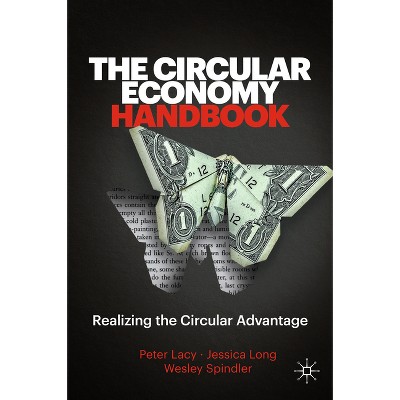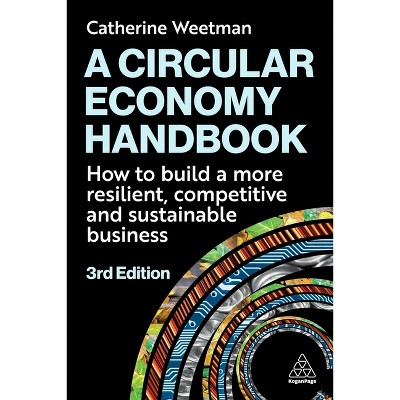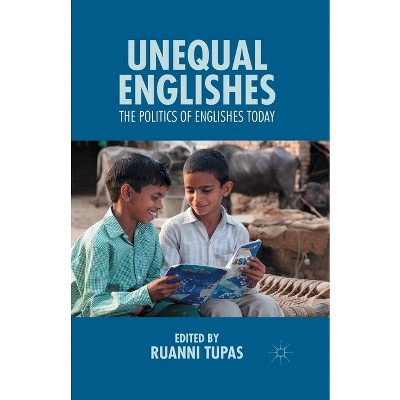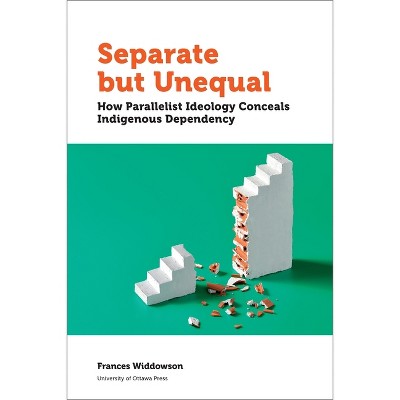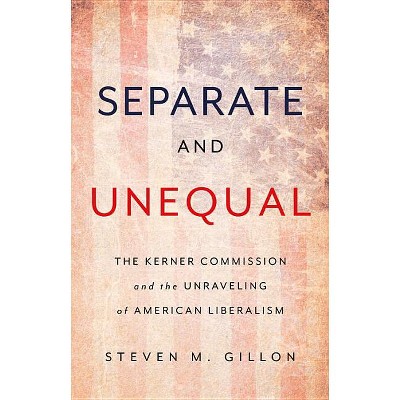Circular Economies in an Unequal World - by Patrick O'Hare & Dagna Rams (Hardcover)

$90.00 when purchased online
Target Online store #3991
About this item
Highlights
- This landmark first anthropological open access volume on the topic of 'circular economies' brings together a range of international scholars with regional specialisations in Europe, Africa, Asia, and South America to examine the concept's global implications.
- About the Author: Patrick O'Hare is a UKRI Future Leader Fellow and Senior Researcher in the Department of Social Anthropology at the University of St Andrews, UK.
- 248 Pages
- Business + Money Management, International
Description
About the Book
A unique, ground-breaking collection of critical anthropological insights into the social impacts of circular economies in Europe, Africa, Asia, and Latin America, all based on ethnographic and qualitative case studies.Book Synopsis
This landmark first anthropological open access volume on the topic of 'circular economies' brings together a range of international scholars with regional specialisations in Europe, Africa, Asia, and South America to examine the concept's global implications.Aspirations towards circular economies have become increasingly prominent around the world, yet until now, social anthropology has largely neglected the potentially deep social impacts of this concept, focusing instead on metrics of waste, despite its obvious implications through every level of the economy and society." Please change this to: "Aspirations towards a circular economy have become increasingly prominent around the world, yet until now, social anthropology has largely neglected the potentially deep social impacts of this concept, despite its obvious implications through every level of the economy and society.
This volume covers a diverse array of international actors, including waste-pickers, traders and policymakers, and the global movement of materials like metals, plastic and textiles. Through ethnographic and qualitative case studies, it exposes many of the tensions that exist between state and corporate ideals of the circular economy, and the vernacular practices and philosophies that exist around the world. Contributors examine the frictions that emerge as these concepts and materials travel across different geographic contexts, and ask - what can an anthropological analysis contribute to a concept that is increasingly reshaping economies and restructuring global flows of virgin commodities, recyclables, and waste?
The ebook editions of this book are available open access under a CC BY-NC-ND 4.0 licence on bloomsburycollections.com. Open access was funded by UKRI.
Review Quotes
A must-read for those interested in the circular economy. This edited collection puts people front and centre, raises awareness of issues of inclusivity, and shows the impact circular solutions can have, even with the best intentions. While the CE agenda is important, we are left reminded that there needs to be a more sensitive and modest approach.
Alison Stowell, Lancaster University, UK
About the Author
Patrick O'Hare is a UKRI Future Leader Fellow and Senior Researcher in the Department of Social Anthropology at the University of St Andrews, UK. His research focuses on waste, recycling, plastics and labour. He is the author of Rubbish Belongs to the Poor: Hygienic Enclosure and the Waste Commons (2022).
Dagna Rams is a Visiting Fellow in the Department of Social Anthropology at the London School of Economics, UK, where she is sponsored by the Swiss National Science Foundation (SNSF). Her research has focused on global waste-to-resource trade between Ghana and the world and more recently on discourses and practices of sustainability in global metal markets. She studies how capitalism and technological innovation relate to resource extraction.Dimensions (Overall): 8.5 Inches (H) x 5.5 Inches (W) x .56 Inches (D)
Weight: .95 Pounds
Suggested Age: 22 Years and Up
Number of Pages: 248
Genre: Business + Money Management
Sub-Genre: International
Publisher: Bloomsbury Publishing PLC
Theme: General
Format: Hardcover
Author: Patrick O'Hare & Dagna Rams
Language: English
Street Date: January 25, 2024
TCIN: 92374456
UPC: 9781350296626
Item Number (DPCI): 247-35-3805
Origin: Made in the USA or Imported
Shipping details
Estimated ship dimensions: 0.56 inches length x 5.5 inches width x 8.5 inches height
Estimated ship weight: 0.95 pounds
We regret that this item cannot be shipped to PO Boxes.
This item cannot be shipped to the following locations: American Samoa (see also separate entry under AS), Guam (see also separate entry under GU), Northern Mariana Islands, Puerto Rico (see also separate entry under PR), United States Minor Outlying Islands, Virgin Islands, U.S., APO/FPO
Return details
This item can be returned to any Target store or Target.com.
This item must be returned within 90 days of the date it was purchased in store, shipped, delivered by a Shipt shopper, or made ready for pickup.
See the return policy for complete information.
Trending Non-Fiction


$12.54
MSRP $22.00
Save $5 when you spend $25 on select books
4.7 out of 5 stars with 20 ratings

$10.84
MSRP $15.99
Save $5 when you spend $25 on select books
4.9 out of 5 stars with 12 ratings


$20.75 - $21.99
MSRP $21.99 - $32.50 Lower price on select items
Save $5 when you spend $25 on select books on select items
4.6 out of 5 stars with 9 ratings

$18.71
MSRP $34.99
Save $5 when you spend $25 on select books
5 out of 5 stars with 9 ratings
